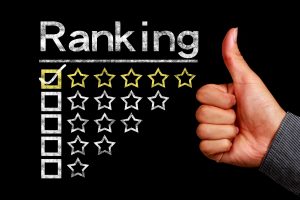 When I learned about Pepperdine Law School’s placement to unranked status in the recent U.S. News Law School Rankings due to an inadvertent mistake, I was surprised.
When I learned about Pepperdine Law School’s placement to unranked status in the recent U.S. News Law School Rankings due to an inadvertent mistake, I was surprised.
Their mistake seemed innocent enough. According to Pepperdine’s Dean Paul Caron, the school’s median LSAT score was 160 but was mistakenly reported as 162. As soon as he learned about the mistake, he contacted U.S. News and asked for an adjustment even though it would have placed them lower in the rankings.
And Pepperdine was punished for its dean’s honesty.

The Trump Gold Card: A New $1 Million Pathway To A U.S. Green Card
A new proposal would let wealthy foreign nationals secure an opportunity for a U.S. green card with a $1 million 'gift' to the government, sparking legal and ethical debate.
Since I don’t have U.S. News’s phone number or email address handy, I can only speculate as to why they took this draconian action. Maybe fixing the error would require them to re-do the rankings which they didn’t have time to do considering most of their customers have to decide which schools to attend in a few months.
But I think Pepperdine’s case is not an isolated incident. Surely other schools have made similar inadvertent mistakes in the past. U.S. News gathers information from many colleges and graduate schools. I’m sure at least one school every year will accidentally (or not) report incorrect median standardized test scores, GPAs, and other information. They must have some sort of correction mechanism in place.
Or maybe U.S. News is no longer taking law schools at their word because they are tired of their shenanigans.
Some of us remember too well how law schools manipulated the U.S. News rankings criteria to maximize their rank. They cherry-picked information and omitted others so that over 90% of their reporting graduates were making $160,000 per year at a law firm. Or they were working a “JD Advantage” job which in reality didn’t require a law degree or any degree at all. The remainder were self-employed solo practitioners with potential clients who couldn’t pay today but would gladly pay on Tuesday. Higher-ranked schools had the advantage of accepting many transfer students whose GPAs and LSAT scores were not reported to U.S. News. There are numerous law review articles that explain how a school can “manage” its U.S. News rankings.

Chrometa: Turning Time Into Billable Value For Modern Lawyers
Adoption of Chrometa represents more than a technological upgrade; it reflects a professional philosophy that values accuracy, transparency, and efficiency.
This wholesale molestation of the rankings was so prevalent that law schools who were not in on it could be accused of committing “rankings malpractice.”
After the game-changing New York Times articles on law schools written by David Segal, Bob Morse of U.S. News warned law schools not to provide misleading information. But his warning fell on deaf ears.
So can one blame U.S. News for doing what they did? Why should they believe a law school when members of its administration claim they made an “inadvertent mistake”?
This action could create a disincentive to be honest. It would encourage law schools to ask for forgiveness instead of permission. But if U.S. News gives this kind of punishment for a minor mistake, imagine what they will do for intentional fraud.
But I get this strange feeling that U.S. News would not treat all law schools the same way they did Pepperdine. For example, if any of the elite schools made a similar inadvertent mistake (particularly the Holy Trinity), I suspect they will be given preferential treatment. This is because they wouldn’t dare place Yale, Harvard, or Stanford on the unranked list because other than drawing a few laughs, it would cause a national debate as to the legitimacy of rankings in general. And we can’t have that, because that would be bad for sales.
What can law schools learn from this? Obviously, they should double-check their numbers before submitting them. Also, they should ask U.S. News to have a system in place where inadvertent mistakes can be corrected without being punished for it. In the meantime, they will have to be honest. This means correcting mistakes as soon as possible regardless of the consequences. And they should call out the bad actors who are basically engaging in predatory business practices and leaving their graduates with unserviceable student loan debt for the rest of their lives.
What happened to Pepperdine Law School may indicate that the credibility of law schools and their administrators have taken a serious hit in the eyes of U.S. News. This will not be easy to remedy. Like most credit dings, it will take time and evidence of responsible behavior before U.S. News will give law schools the benefit of the doubt for future inadvertent mistakes.
Shannon Achimalbe was a former solo practitioner for five years before deciding to sell out and get back on the corporate ladder. Shannon can be reached by email at [email protected] and via Twitter: @ShanonAchimalbe.